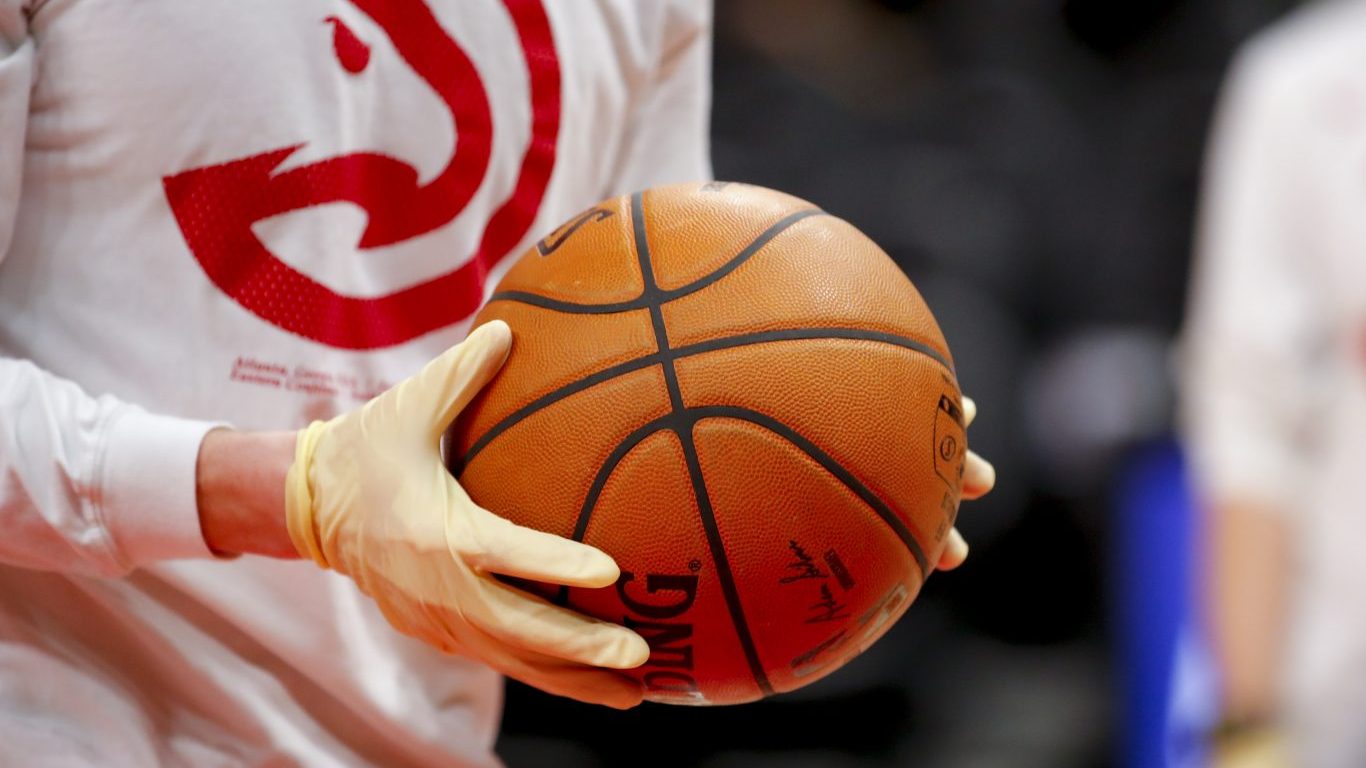Sports are often an escape from the difficulties of everyday life, but the COVID-19 pandemic has forced three of America’s largest sports leagues to postpone some of their games — and at least two leagues may have to cancel the rest of the season.
The NBA and NHL usually crown a champion in June, though their postseasons could be delayed or even canceled. The MLB already missed its planned opening day, and it is unclear when baseball could start. Even the NFL season, which is slated to start in September, may be in jeopardy.
Even when international events like the Olympics were canceled in war time, American sports leagues typically played on. While the pandemic is certainly unprecedented, there have been several instances in the past in which sports fans missed portions or even an entire season. These cancellations happened due to labor lockouts, tragedies, and major historical events.
24/7 Wall St. looked back at mass cancellations of NFL, NBA, MLB, and NHL games caused by major past events, using sources including the Sport Reference family of sites. We only considered events that affected multiple games across one or more leagues. For instance, the 1919 Stanley Cup final was canceled because of the Spanish influenza outbreak as most of Montreal’s players were sick before the decisive game six. As just one game was canceled, that case did not make this list of mass cancellations.
While the cancellation of sporting events is frustrating for athletes who may be denied a shot at a championship and for fans who enjoy watching at home, these events are staffed by thousands of food vendors, security workers, and other support staff at venues who are now out of work. Some players and owners have pledged their own money to help staff, but these workers remain among the many Americans facing huge economic challenges because of the pandemic. These are the American industries being devastated by the coronavirus.
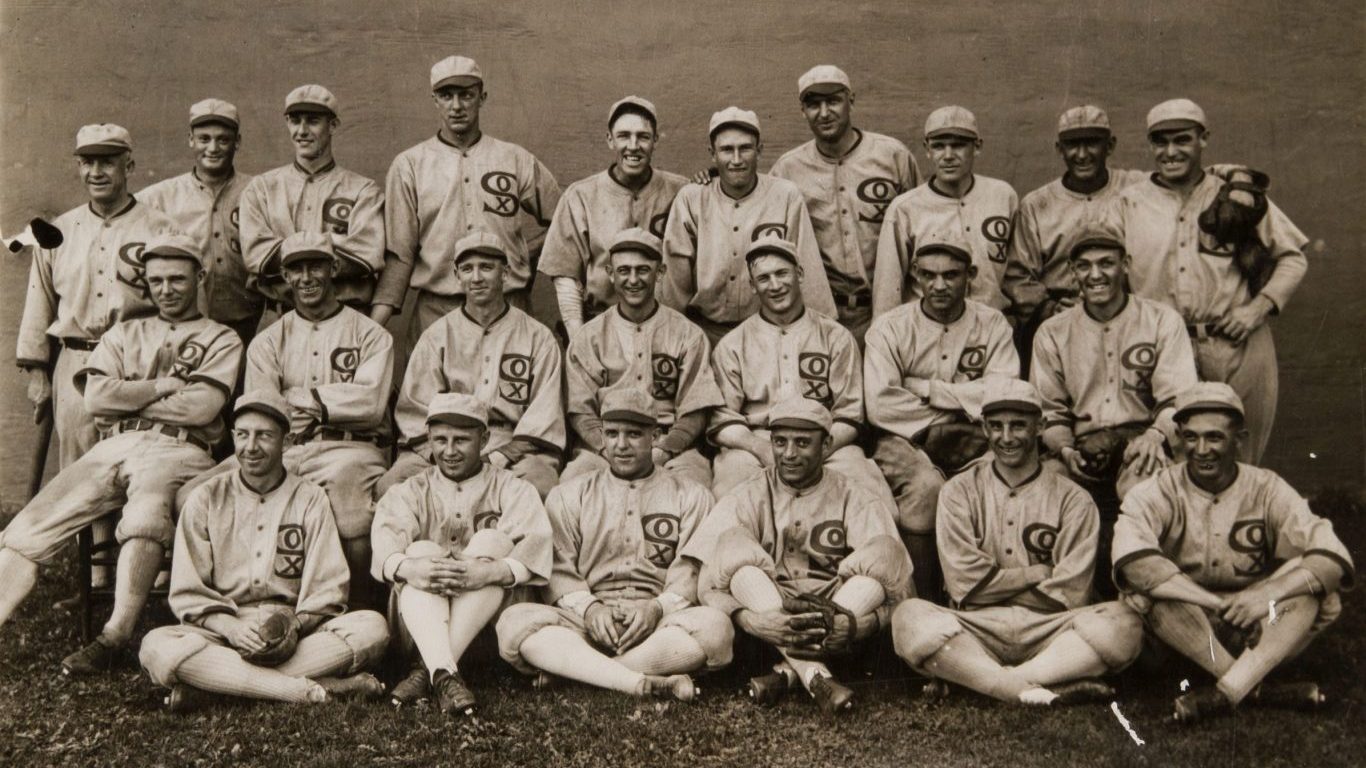
1. World War I
> Leagues affected: MLB
> Season affected: 1918, 1919
As a result of World War I, Major League Baseball cut its 1918 season short. The World Series was played in September, a month earlier than the year before. Each team played 10 to 20 fewer games than originally scheduled, and the start of the 1919 season was also postponed.
Many players enlisted in the military or took factory jobs to help the war effort. The last year of the war was also the first season of the newly formed NHL, though the public paid little attention to the sport in light of the global conflict.
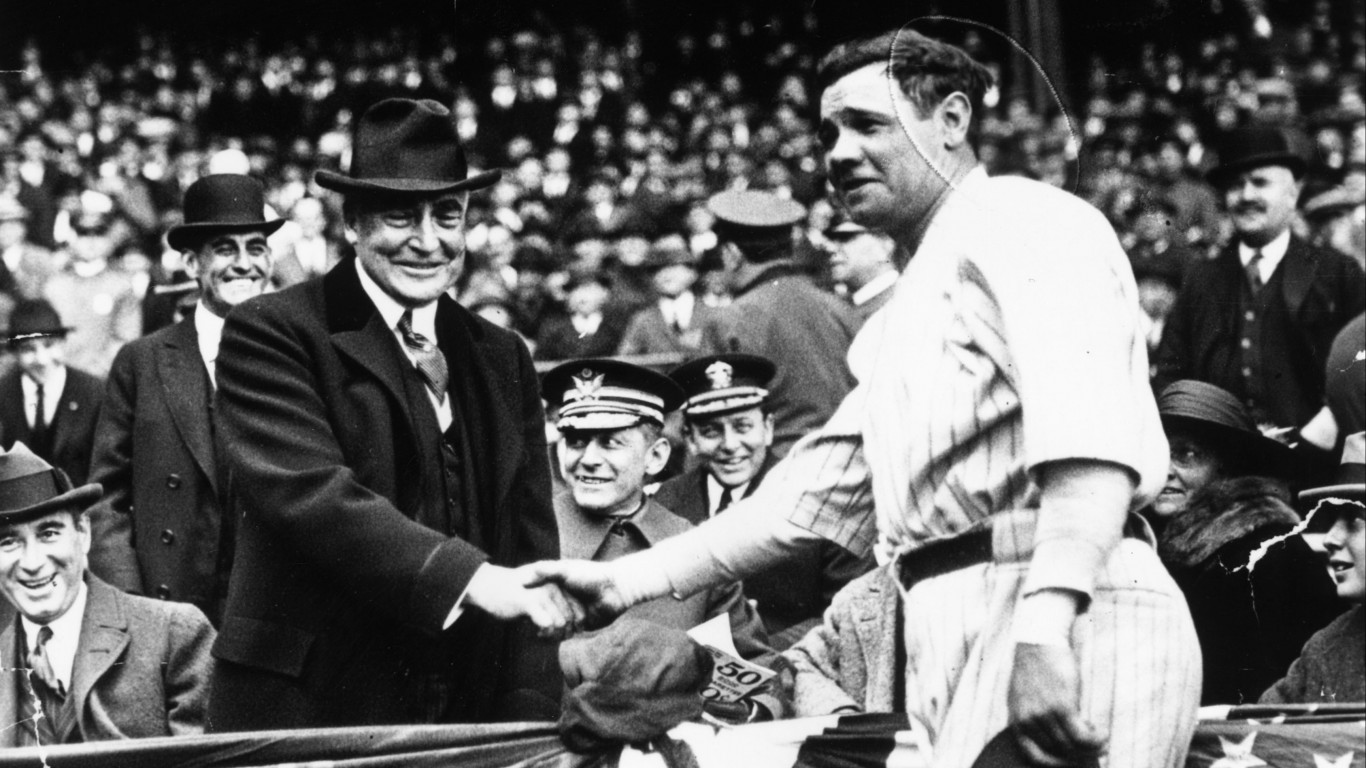
2. Warren G. Harding’s death
> Leagues affected: MLB
> Season affected: 1923
America’s 29th president, Warren G. Harding, unexpectedly passed away in office on Aug. 2, 1923. The MLB’s entire schedule for the day after was postponed, as were all games scheduled for Aug. 10, the day of Harding’s funeral.
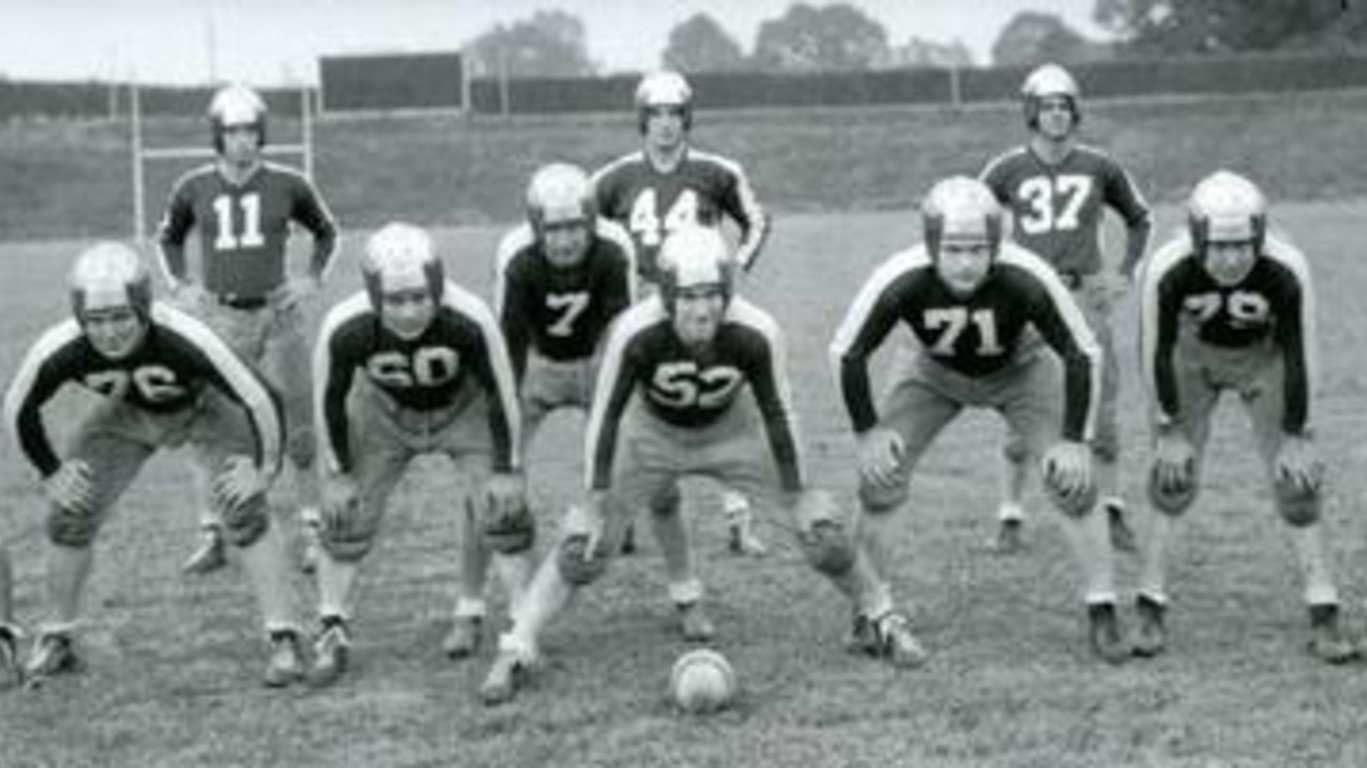
3. World War II
> Leagues affected: NFL
> Season affected: 1943
Preparing for a season amid a war, the NFL shortened each team’s 1943 schedule to 10 games. With players off at war, many teams did not have enough athletes to fill out their roster. For the 1943 season, the Cleveland Rams suspended operations, and the Philadelphia Eagles and Pittsburgh Steelers combined their rosters to make the “Steagles.” The MLB and NHL both faced similar roster shortages but did not lose any games. They made do by bringing up young players or coaxing past players out of retirement.
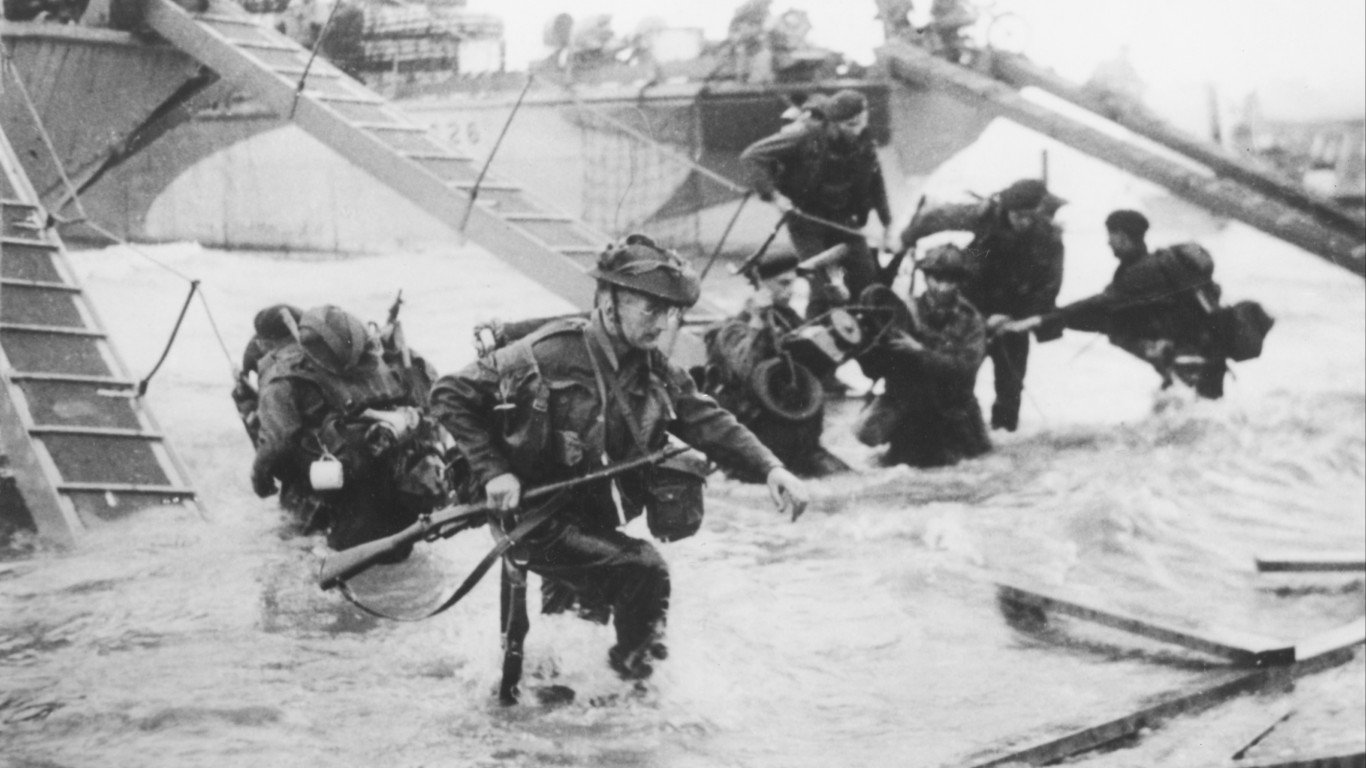
4. D-Day
> Leagues affected: MLB
> Season affected: 1944
World War II did not have a huge impact on the MLB’s schedule. President Franklin Roosevelt asked MLB Commissioner Kennesaw Mountain Landis to keep baseball going to offer Americans a distraction during the war. Teams played with patchwork rosters as many notable players left their teams to join the military during the war. The one time baseball paused for the war was on June 6, 1944 — D-Day. To mark the assault on Normandy, all MLB games from that day were rescheduled.
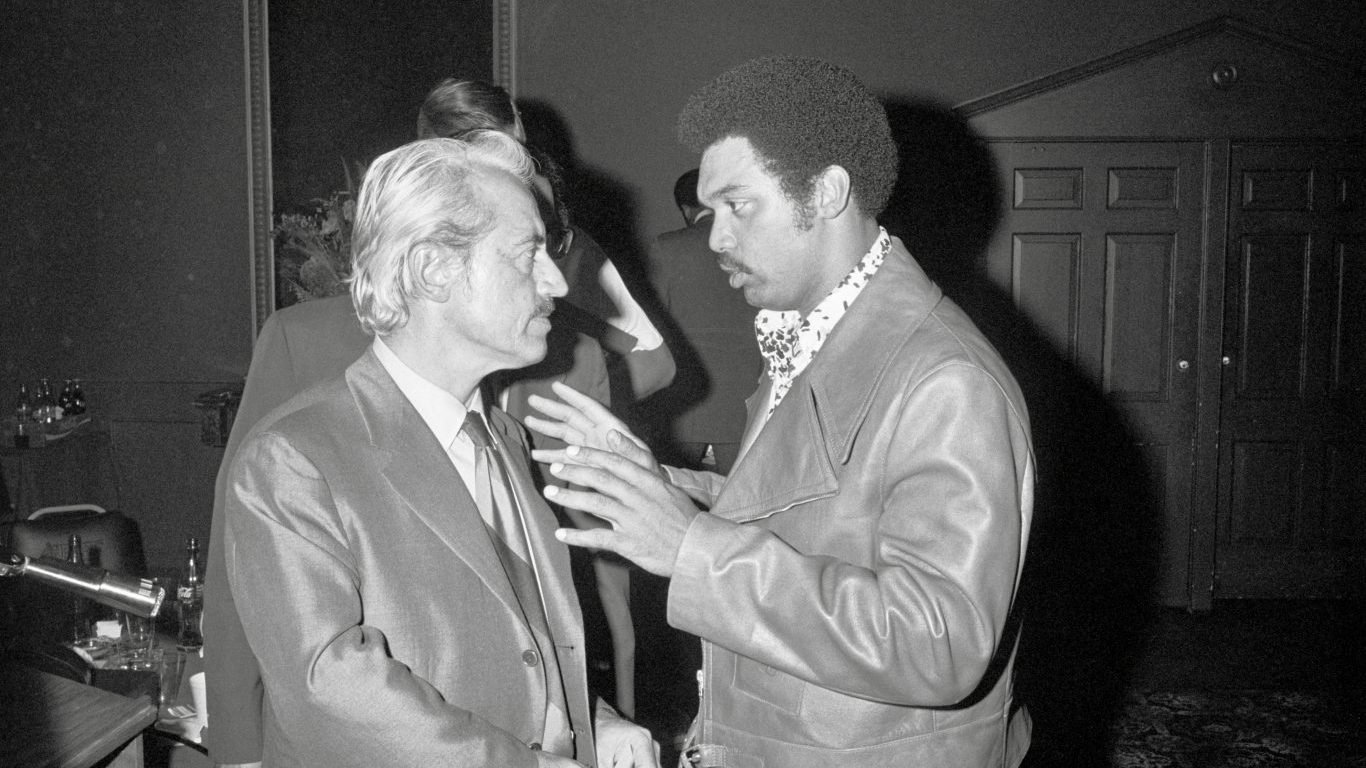
5. MLB strike of 1972
> Leagues affected: MLB
> Season affected: 1972
Baseball’s first strike came in 1972, when players went on strike. After 13 days, owners agreed to add $500,000 to the players’ pension fund and allow salary arbitration. The stoppage canceled the first week of games, and not all teams were evenly affected — some got to play 156 games, while others played one or two fewer games. This may have cost the Boston Red Sox a shot at the postseason as they finished 1972 with an 85-70 record, a half-game back of the 86-70 Detroit Tigers.
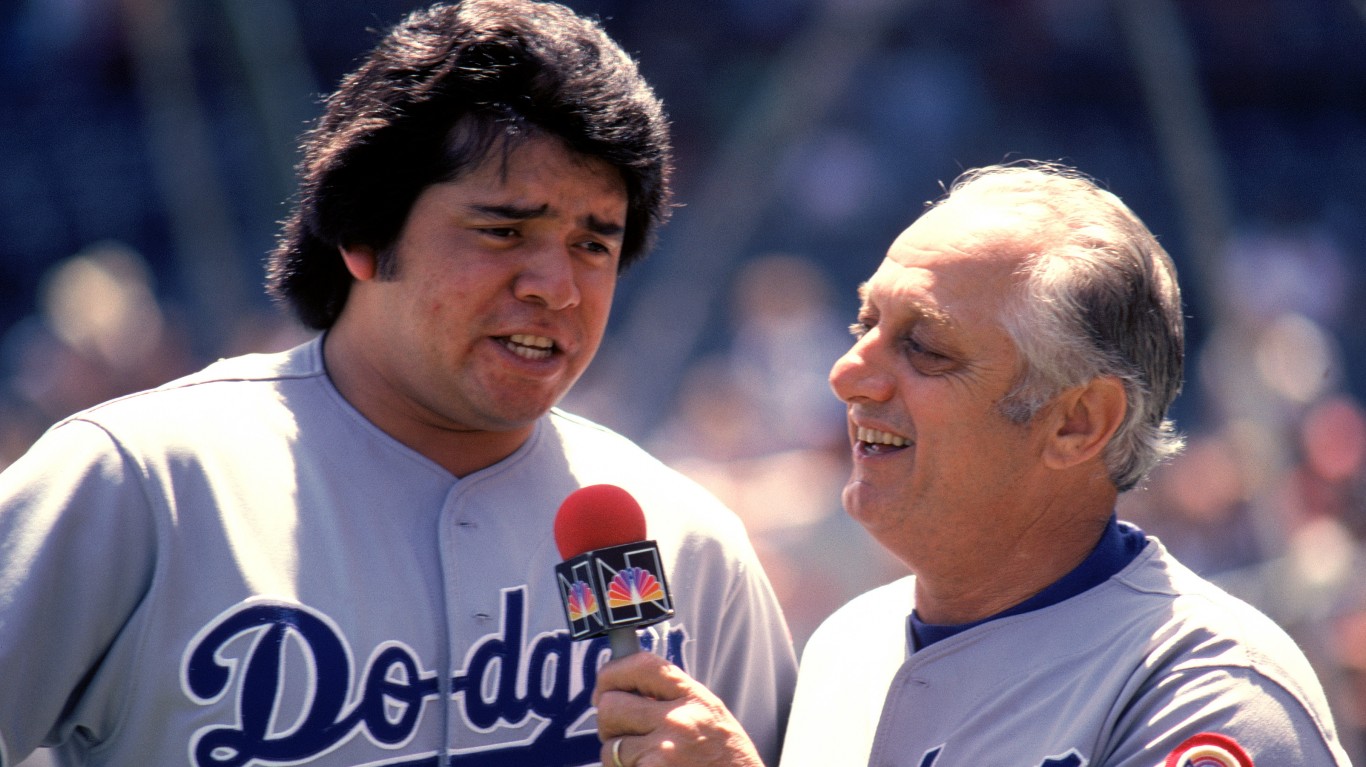
6. MLB strike of 1981
> Leagues affected: MLB
> Season affected: 1981
MLB players went on strike for the second time in 1981, this time over free agency. In the event a star player left in free agency, teams wanted to be compensated with another player of similar value, but players were opposed. Games were canceled from June 12 to Aug. 10, and schedules were uneven that season, with teams playing between 102-110 games.
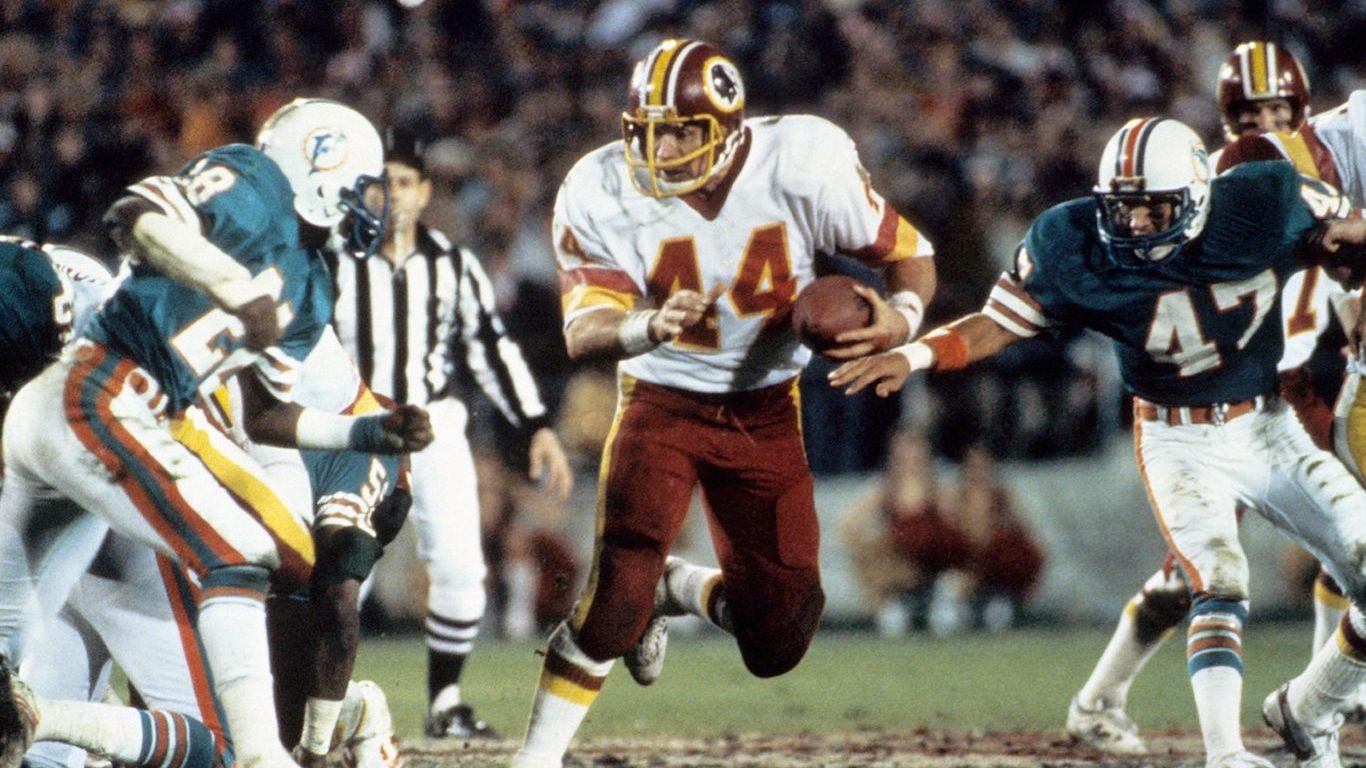
7. NFL strike of 1982
> Leagues affected: NFL
> Season affected: 1982
The NFL Players Association went on strike three times prior to 1982, but that season would be the first time the NFL missed games over a labor dispute. The strike began after week two, in September, and the season resumed in November. Teams played just nine games apiece that season as opposed to 16 in a typical season.
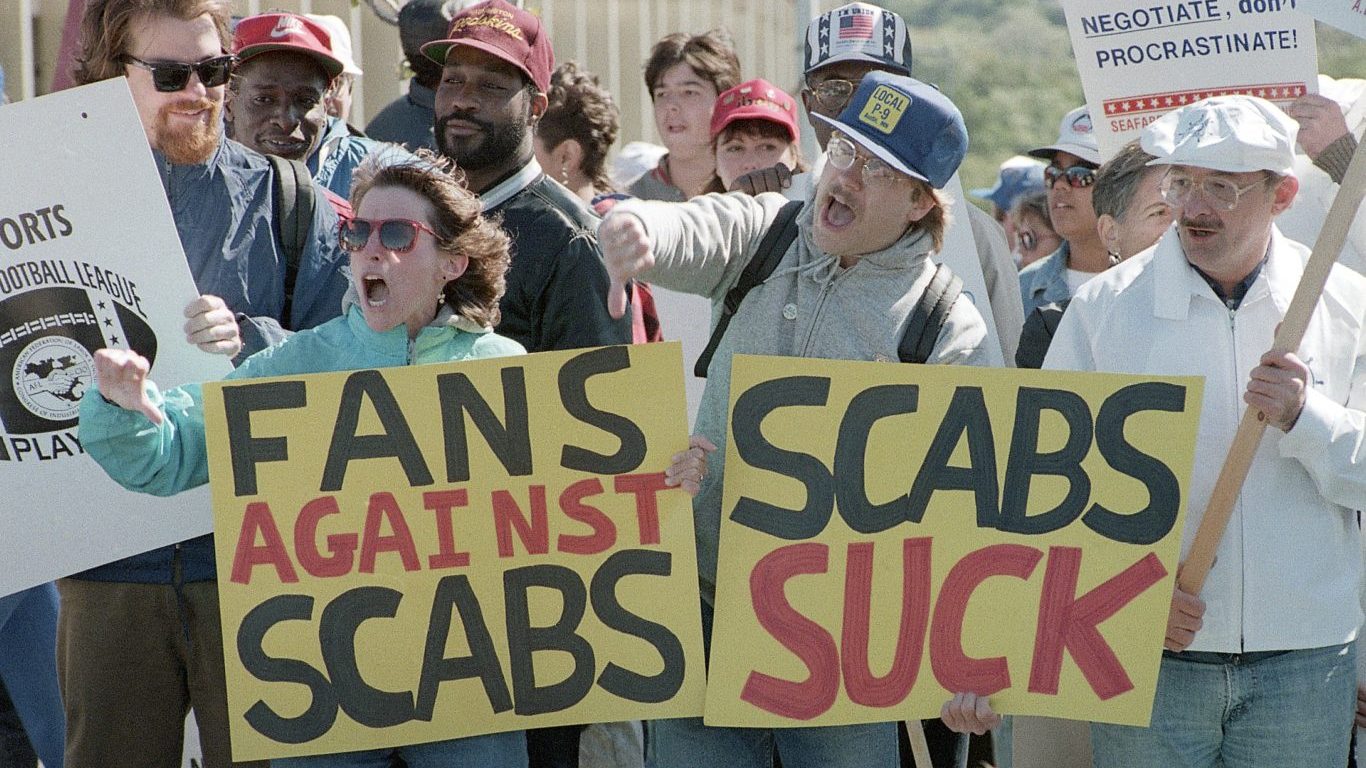
8. NFL strike of 1987
> Leagues affected: NFL
> Season affected: 1987
Though it was shorter than the strike five years earlier, the NFL’s 1987 stoppage may have been more contentious. NFL players sought more control in free agency and started striking after week two. Owners hired athletes to replace the striking players, so only one week was completely canceled. After star players began crossing the picket lines, the strike fizzled out after 24 days.

9. NHL strike of 1992
> Leagues affected: NHL
> Season affected: 1992
The NHL’s first labor-related work stoppage ended up postponing 30 games. The players began their strike in April, just before the start of the playoffs, giving them substantial leverage in negotiations, because the postseason brings in significant revenue. After 10 days, the players and owners agreed to a new collective bargaining agreement that lengthened each team’s schedule from 80 to 84 games.
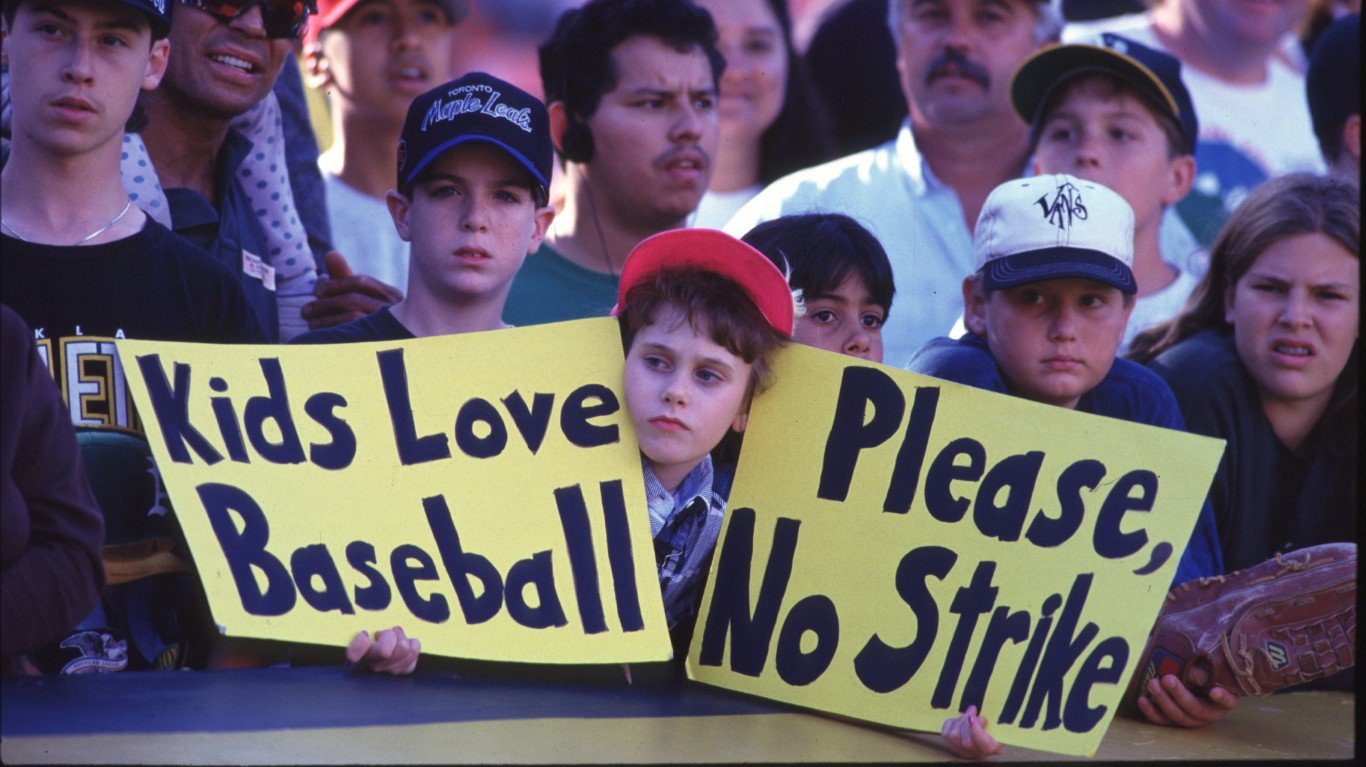
10. MLB strike of 1994 and 1995
> Leagues affected: MLB
> Season affected: 1994, 1995
The longest work stoppage in MLB history began in 1994. Owners reopened the active MLB labor deal and proposed changes that would benefit them, pressing players to make concessions on salary caps, arbitration, revenue splitting, pensions, licensing revenue, free agency, and more. Players refused and went on strike. This cut the 1994 season short by around 50 regular season games per team and canceled baseball’s postseason. The National Labor Relations Board repeatedly found that the owners acted unfairly, and the sides only came to an agreement after a U.S. District Court forced them to do so. Baseball came back in April 1995 after nearly eight months of labor strife.
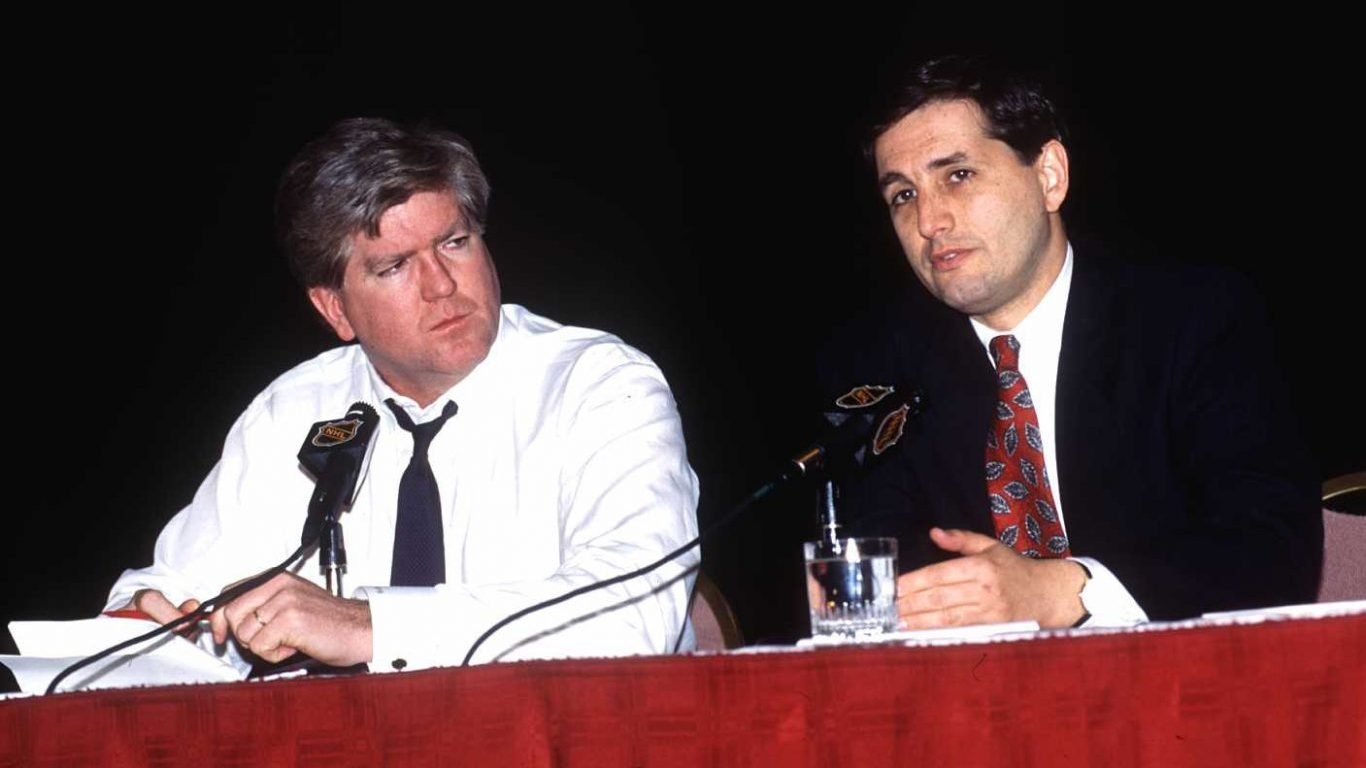
11. NHL lockout of 1994-1995
> Leagues affected: NHL
> Season affected: 1994-1995
The NHL played the 1993-1994 season without a collective bargaining agreement. Owners, pushing to institute a salary cap, locked out the players for over three months, starting October 1994. The owners eventually relented, settling for a rookie cap and free agency limitations, and the season began in January 1995. Teams played just 48 games that season instead of the usual 82.
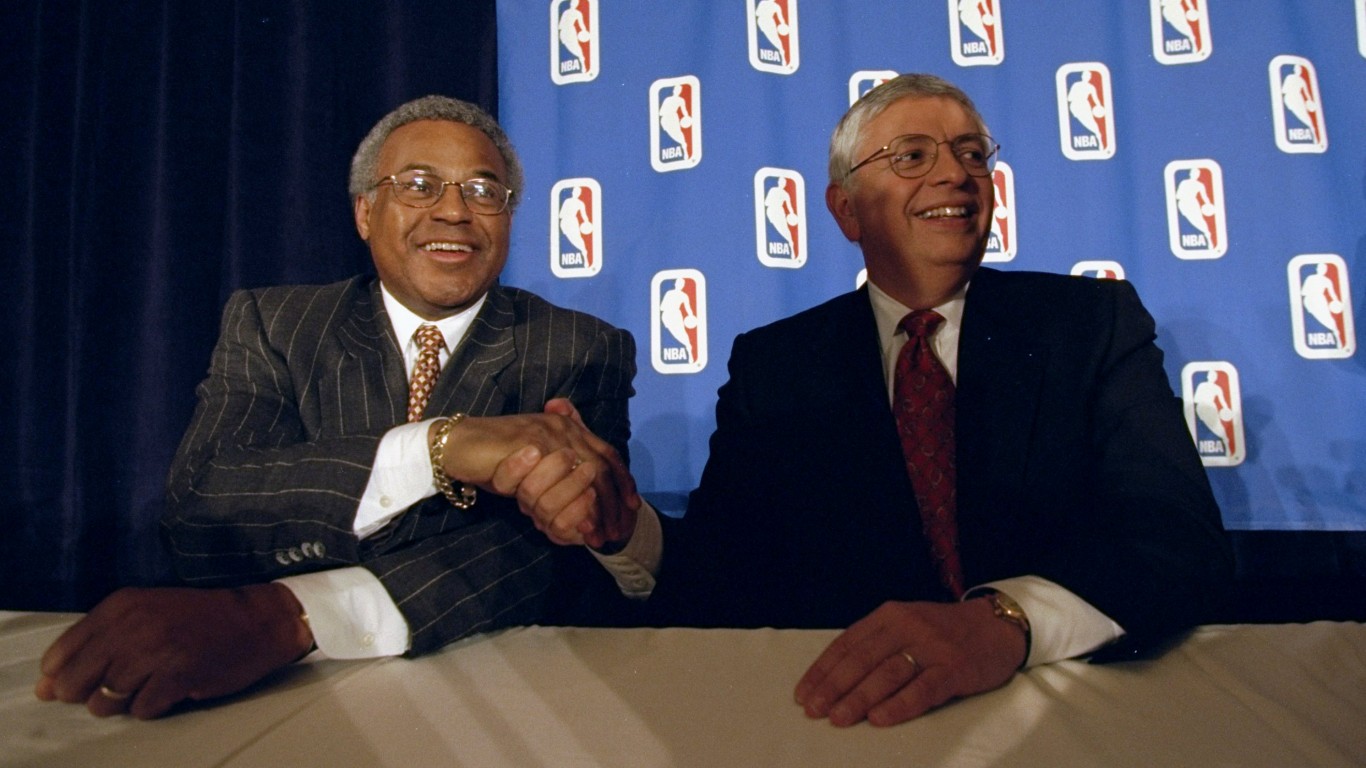
12. NBA lockout of 1998-1999
> Leagues affected: NBA
> Season affected: 1998-1999
The first NBA lockout that resulted in cancelled games started in July 1998 and didn’t end until January 1999 — spanning over 200 days. Like many other lockouts in other leagues before, owners sought to reduce spending through measures like a salary cap. When an agreement was reached, there was only enough time for a 50-game regular season.
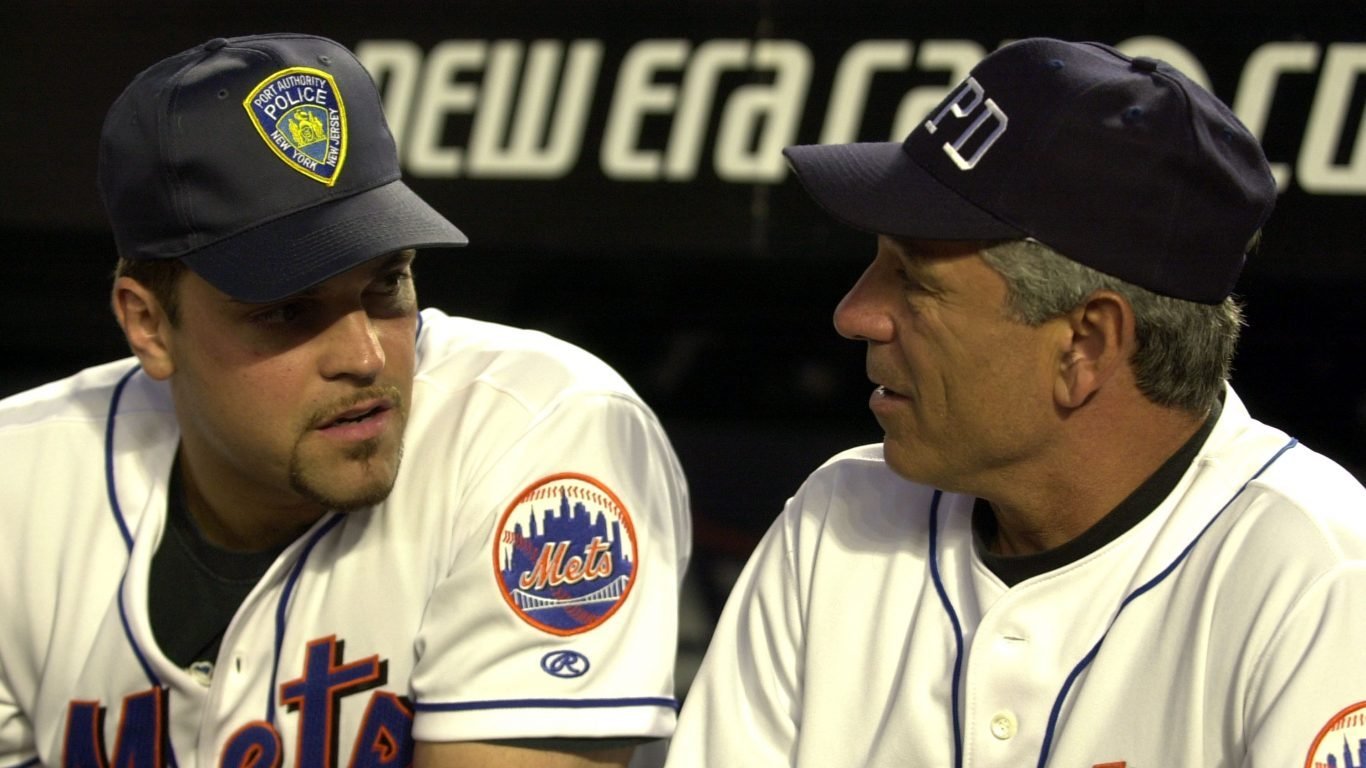
13. Sept. 11 terrorist attacks
> Leagues affected: MLB, NFL
> Season affected: 2001
The terrorist attacks on Sept. 11, 2001, brought nearly everything in America to a halt, including sports. MLB games were postponed for a full week. The NFL canceled its slate of games scheduled for the weekend of the 16th, adding those games to the end of the regular season.
New York’s first sporting event after 9/11 took place 10 days later, when the New York Mets hosted the Atlanta Braves. Mike Piazza hit a go-ahead game winning two-run home run in the 8th inning, giving the Mets a 3-2 victory and giving the city something to cheer about. It remains one of the most enduring and memorable moments in MLB history.
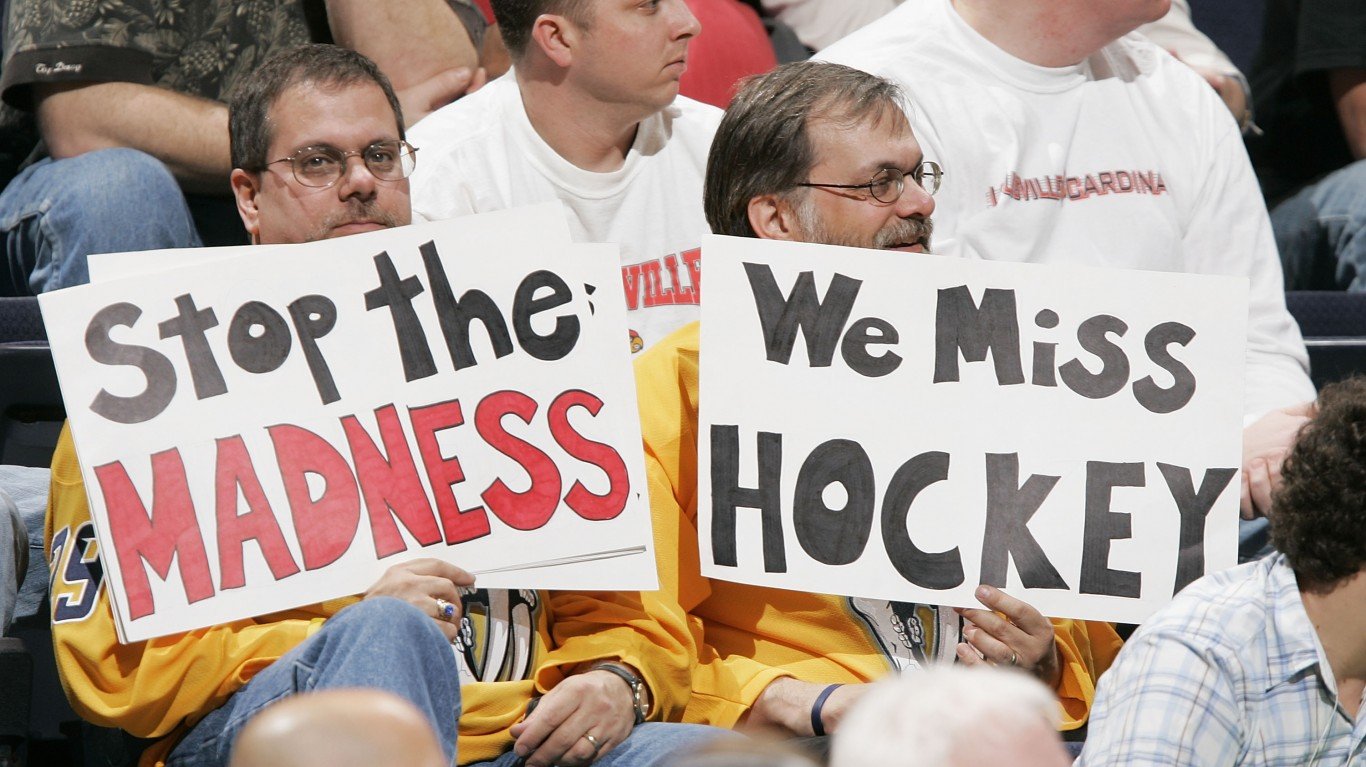
14. NHL lockout of 2004-2005
> Leagues affected: NHL
> Season affected: 2004-2005
The 2004-2005 NHL season was completely wiped out by an owners’ lockout, as they wanted to institute a salary cap, which the players pushed back against. It was the only time one of the major North American sports leagues lost an entire season due to a labor dispute. Hockey returned in 2005 with a full slate of games, though it would not be the last time NHL fans would be forced to endure a lockout.
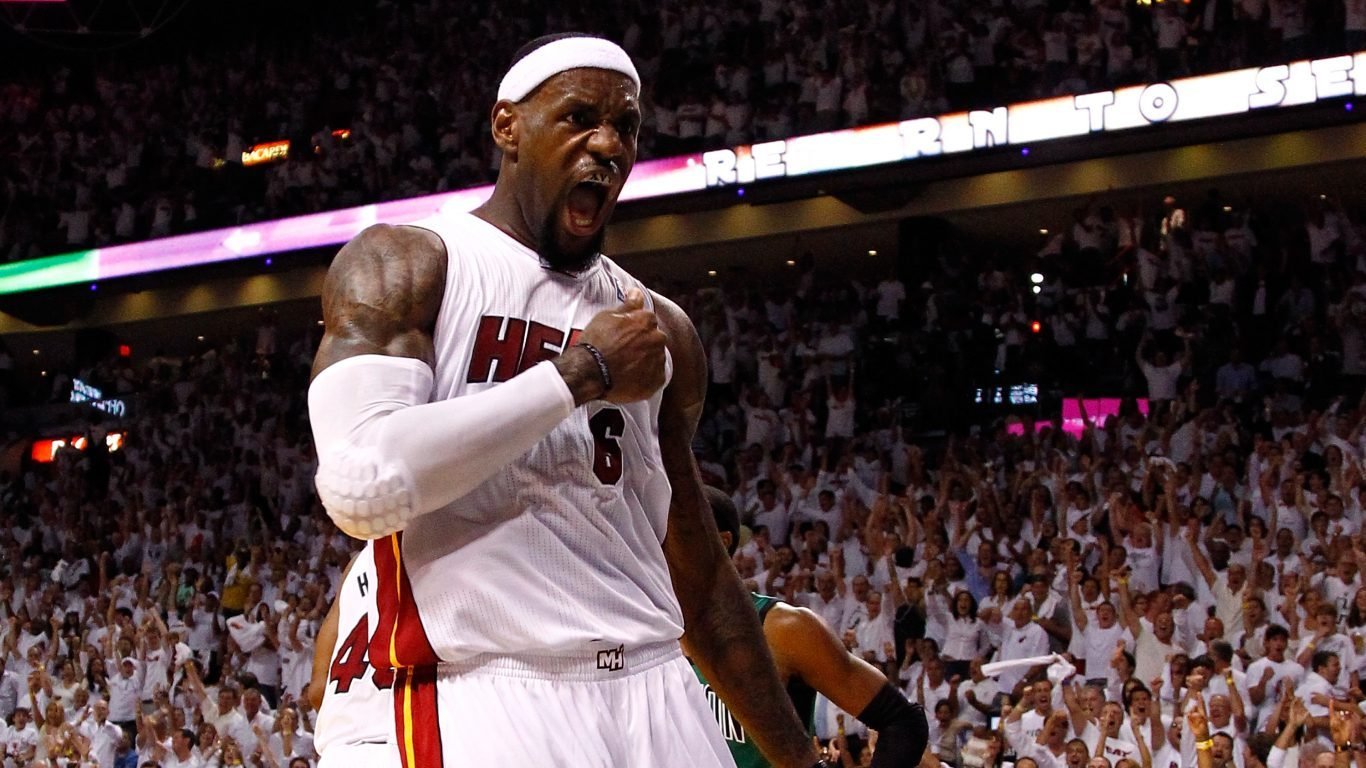
15. NBA lockout of 2011
> Leagues affected: NBA
> Season affected: 2011
In their collective bargaining agreement that ended in 2011, NBA players received 57% of basketball-related income from the league. In negotiations, owners tried to reduce that share to 50%, and threatened to offer players just 47% if they did not accept the 50-50 split. Players insisted that they get more than 51%, and the season was delayed over four months. The NBA eventually came back for an abbreviated 66-game schedule.
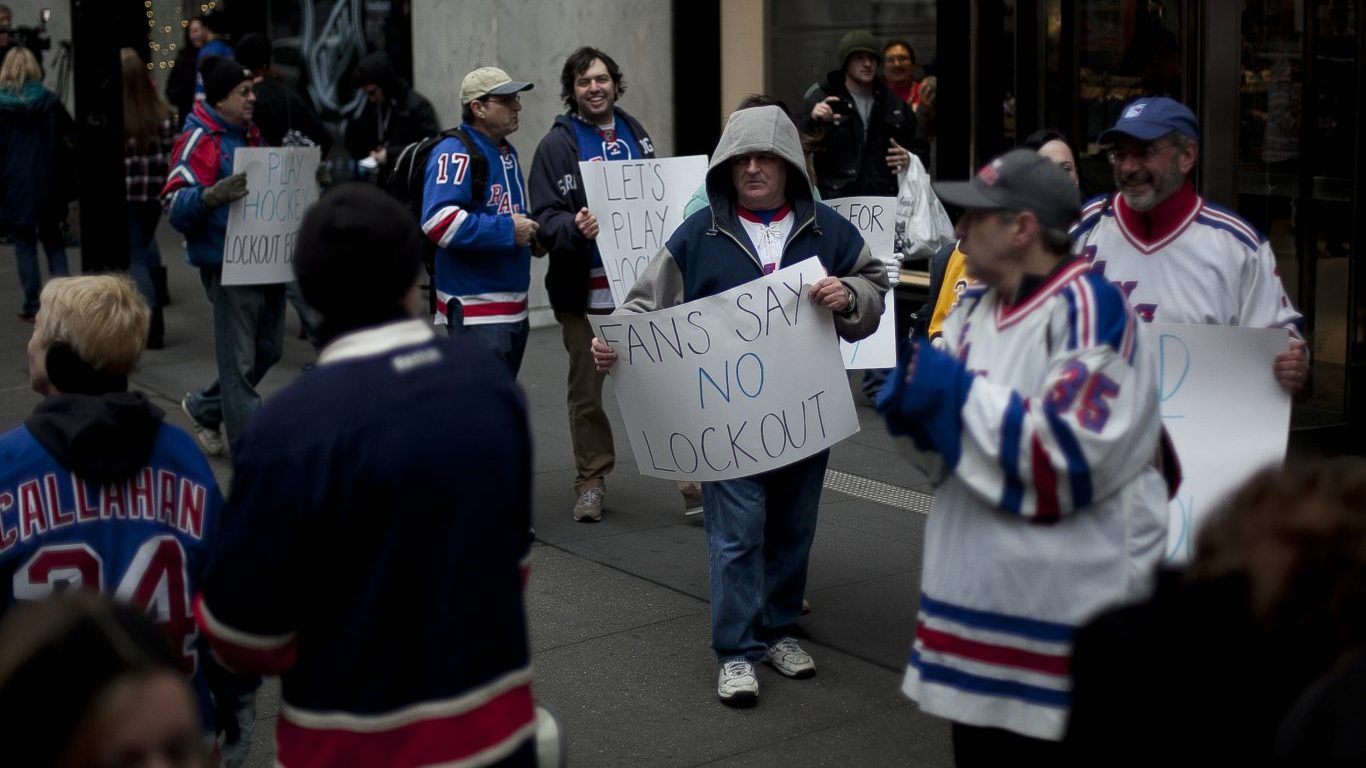
16. NHL lockout of 2012-2013
> Leagues affected: NHL
> Season affected: 2012-2013
Another labor dispute shortened the 2012-2013 NHL season from 82 games to just 48. Players rejected a deal with owners that would have reportedly slashed their share of league revenue from 57% to 43%. The two sides could not meet in the middle until January 2013.
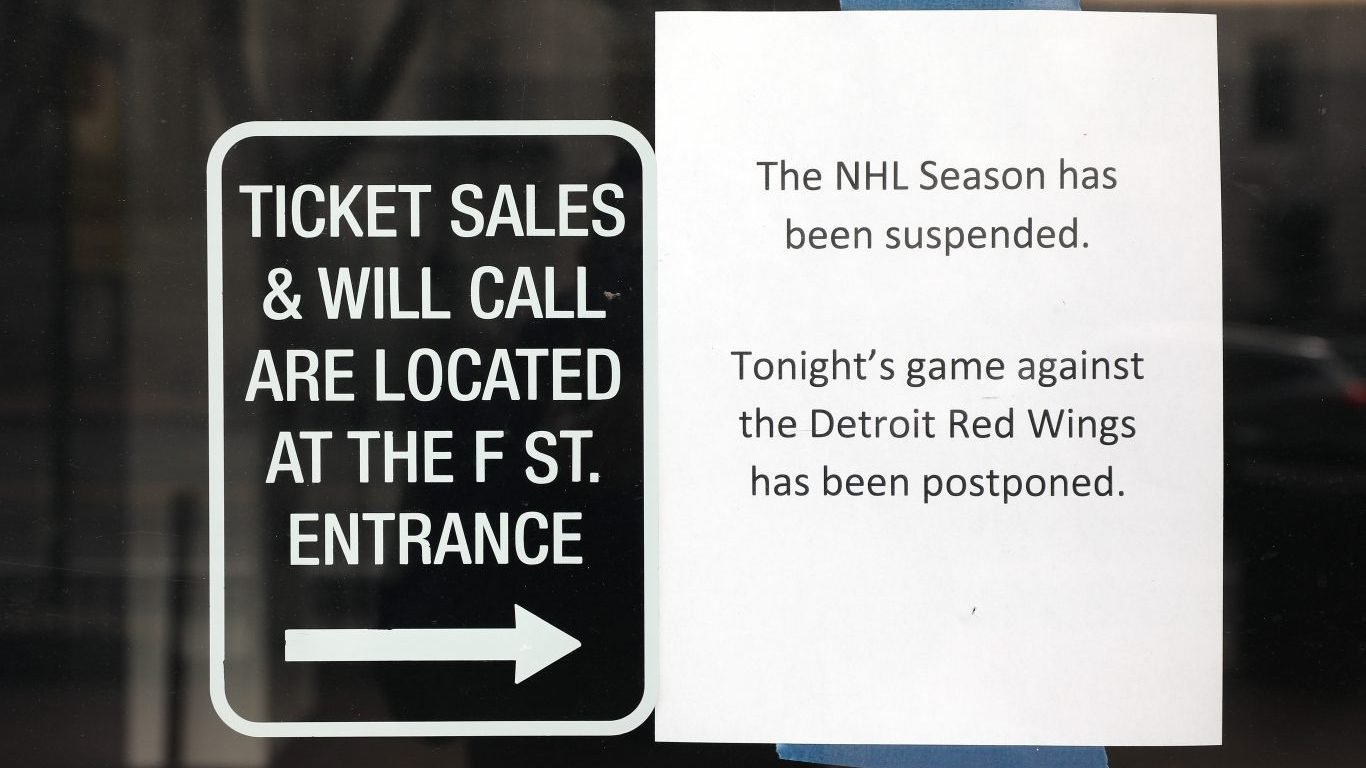
17. COVID-19 pandemic
> Leagues affected: NBA, NHL, MLB, and more
> Season affected: 2020
It is too soon to know the extent to which the sports world will be affected by the coronavirus pandemic. So far, the NBA and NHL seasons are on hold, and reportedly there is concern that neither league will be able to complete its 2019-2020 campaign — both seasons typically end in June. Around March 25, MLB commissioner Rob Manfred said he hoped baseball would be back in May. More recently, however, around Apr. 4, President Donald Trump told commissioners of several major sports leagues that he hoped fans would be able to attend sporting events by August, according to ESPN.
The NFL is still planning to start its season in September as scheduled, as long as players are able to be tested before then. The NFL Draft is also slated to happen on its previously planned April 23-25 date, with limited staff from teams with no on-site players. Winter and spring college sports have been scrapped for 2020. Other events in golf, tennis, auto racing, soccer, the Olympics, and more have either been canceled or postponed as well.
